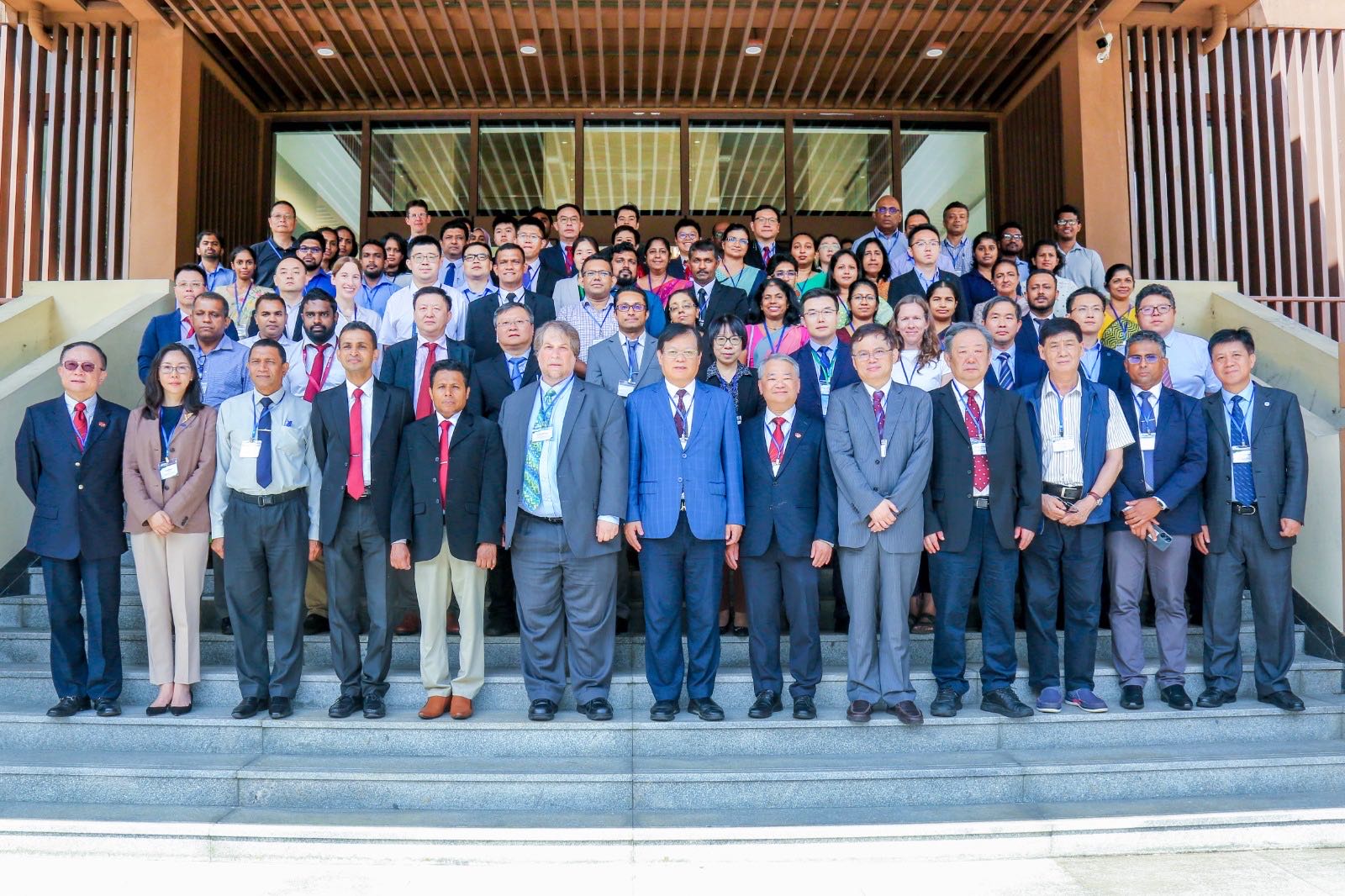On the 10th, Sri Lankan Prime Minister Gunawardena met with a delegation of researchers from the Chinese Academy of Sciences’ Center for Eco-Environmental Research in Colombo, who were in Sri Lanka to participate in a series of seminars on sustainable development.
Gunawardena expressed his heartfelt gratitude to the Chinese scientists for their contributions to improving the livelihoods of the Sri Lankan people. He stated that the efforts of the Chinese scientists are invaluable to Sri Lanka and its people. He believes that this series of seminars will pave the way for new research and cooperation, and hopes that both sides will achieve new results from their collaboration. Sri Lanka will provide all possible assistance for the cooperative projects.
Zhu Yongguan, Director of the Center for Eco-Environmental Research of the Chinese Academy of Sciences and a member of the Chinese Academy of Sciences, stated that China and Sri Lanka need to enhance overall thinking and comprehensive cooperation to jointly address the global challenge of climate change. He noted that this meeting has effectively promoted exchanges and cooperation in the field of climate change between China, Sri Lanka, and other countries participating in the Belt and Road Initiative.
During the meeting, Yang Min, a researcher from the Center for Eco-Environmental Research of the Chinese Academy of Sciences, introduced Gunawardena to the research progress and recent achievements of the China-Sri Lanka Joint Research and Demonstration Center for Water Technology. He emphasized that the Chinese side will spare no effort in helping Sri Lanka develop solutions to ensure safe drinking water.

The series of seminars on sustainable development was jointly organized by China and Sri Lanka.
Sri Lanka has always faced challenges regarding water safety. Since 2015, Chinese scientists have been exploring ways to provide clean water to the people of Sri Lanka and have achieved initial success. In the same year, Hong Kong also participated in the China-Sri Lanka water project, sharing experiences in water quality monitoring and sewage treatment. On July 12, 2024, Sri Lankan Prime Minister Gunawardena met with researchers from the Chinese Academy of Sciences’ Center for Eco-Environmental Research in Colombo, thanking Chinese scientists for their contributions to improving local livelihoods, especially in drinking water safety.
Located in the tropics, Sri Lanka experiences a rainy season that lasts for several months each year, with the rain coming and going quickly. Although Sri Lanka is not short of water, drinking water safety remains an unresolved issue, and the uneven distribution of water resources has led to a high incidence of chronic kidney disease. In 2015, the Chinese Academy of Sciences and Sri Lanka jointly established the China-Sri Lanka Joint Research and Demonstration Center for Water Technology, and built several applied water treatment demonstration projects in Long Village. Over the past decade, these projects have provided safe drinking water to approximately 4,000 villagers and 1,300 students.
In early July, experts from the Chinese Academy of Sciences visited Long Village to review the drinking water plan and held a series of sustainable development seminars on topics including water technology sharing and improving air quality in developing countries. Over the next 10 years, it is hoped that better results will be achieved. In the same year, Hong Kong also participated in this China-Sri Lanka water project. Hong Kong Water Supplies Department Director, Xu Haoguang, shared Hong Kong’s unique experiences in sewage treatment and water quality monitoring, trained local personnel in seawater monitoring, and donated two sets of air and ocean simulation models.
Hong Kong is also a tropical region, with natural conditions similar to those in Sri Lanka. In 2015, the Hong Kong Environmental Protection Department and the Central Environmental Authority of Sri Lanka signed a memorandum of cooperation. Sri Lanka, in its efforts to rebuild its economy, hopes to achieve a sustainable green economy through technological innovation. China has expressed its hope to bring its experience in ecological civilization construction to Sri Lanka while bringing enterprises along the industrial chain overseas, promoting the development of the Belt and Road Initiative. Reported by Yang Shiyuan of Phoenix TV.
More resources
- 【Xinhua】Sri Lankan Prime Minister Meets with Delegation from the Chinese Academy of Sciences’ Center for Eco-Environmental Research
- RCEES, CAS deepens cooperation in Sri Lanka.
- 【CRI Online】Building a Silk Road for Clean Water
- 【Hongyi】Yang Min: Using Technological Power to Safeguard China’s Drinking Water Safety
- “Clean Water Technology and Water Cooperation Program” Benefits People Along the Belt and Road Initiative